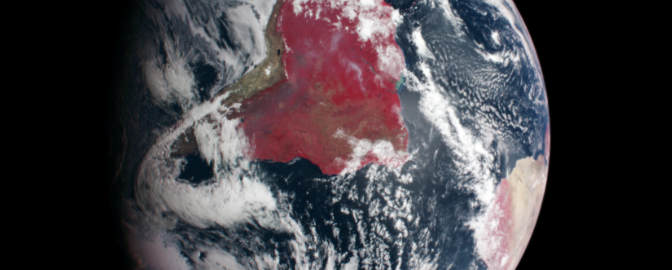Since 2002, Planetary Radio has visited with a scientist, engineer, project manager, advocate, or writer who provides a unique perspective on the quest for knowledge about our Solar System and beyond. The full show archive is available for free.
Search Planetary Radio
NASA’s Perseverance rover has found potential biosignatures in Jezero Crater’s Bright Angel formation. Host Sarah Al-Ahmed speaks with Joel Hurowitz, associate professor of geosciences at Stony Brook University and lead author of the new Nature paper, about this remarkable discovery.
Highlights from the 2025 Humans to the Moon and Mars Summit explore why space science is a vital national interest for the United States and how the Artemis Accords are shaping international collaboration in deep space.
The Giant Magellan Telescope advances toward construction with support from the National Science Foundation. Dr. Rebecca Bernstein joins us to explore how this groundbreaking observatory will transform our view of the universe.
Why is Mars red? A new study led by Brown University’s Adomas Valantinas points to ferrihydrite, not hematite, revealing a wetter past and new clues about the Red Planet’s potential to support life.
We explore bold ideas from the Mars Innovation Workshop and uncover why NASA’s decision to dissolve key advisory offices is raising concerns across the space community.
The Planetary Society team reviews the best space moments of 2024, from the China National Space Administration's return of samples from the far side of the Moon to the triumphant launch of NASA's Europa Clipper mission.
Lauren Mc Keown, a postdoctoral fellow at NASA's Jet Propulsion Laboratory, discusses her experiences recreating Martian araneiform terrain, also called Mars spiders, in the lab.
We share a conversation from the Humans to Mars Summit about integrating NASA and its partners as humanity looks to build a permanent and sustainable human presence on Mars.
Twenty years after a pioneering collaboration between The Planetary Society, NASA, and LEGO, Planetary Radio reflects on the Red Rover Goes to Mars program and the lives it impacted.
Sabine Stanley, author of the new book "What's Hidden Inside Planets?", discusses some of the amazing things that lie under the surfaces of the worlds in our Solar System.
Mat Kaplan, Planetary Radio's creator and former host, takes us on an adventure with planetary geologist Kirby Runyon as they tour New Mexico, U.S.'s varied geology and compare it to other worlds.
Benjamin Fernando, a postdoctoral fellow from the University of Oxford, joins Planetary Radio this week to discuss the largest marsquake ever recorded and the international effort it took to pinpoint.
Kelly and Zach Weinersmith join Planetary Radio this week to discuss their new book, A City on Mars: Can We Settle Space, Should We Settle Space, and Have We Really Thought This Through?
NASA's Mars Sample Return mission is both a top priority and seriously troubled. Independent review board chair Orlando Figueroa joins us to talk about the challenges and what must be done.
The InSight RISE instrument's principal investigator, Sebastien Le Maistre, from the Royal Observatory of Belgium, joins Planetary Radio to discuss Mars' increased rotation speed.
Join Planetary Radio host Sarah Al-Ahmed on a trip to the 2023 NASA Innovative Advanced Concepts (NIAC) Symposium in Houston, Texas. This episode is part one of two.
Amy Williams, assistant professor of geology at the University of Florida, joins Planetary Radio to discuss the proposed Mars Life Explorer mission and the search for extant life on Mars.
Caltech and Brown University’s Jay Dickson joins Planetary Radio to discuss the mysterious formation of gullies on Mars.
Sam Birch, an assistant professor at Brown University, explores what we know about the alluvial rivers of Earth, Mars, and Saturn's moon Titan.
We check in on the congressional budget process for NASA, Mars Sample Return’s spiraling cost growth, and the impending end of the regulatory holiday for human commercial space launch companies.


 Explore Worlds
Explore Worlds Find Life
Find Life Defend Earth
Defend Earth



















